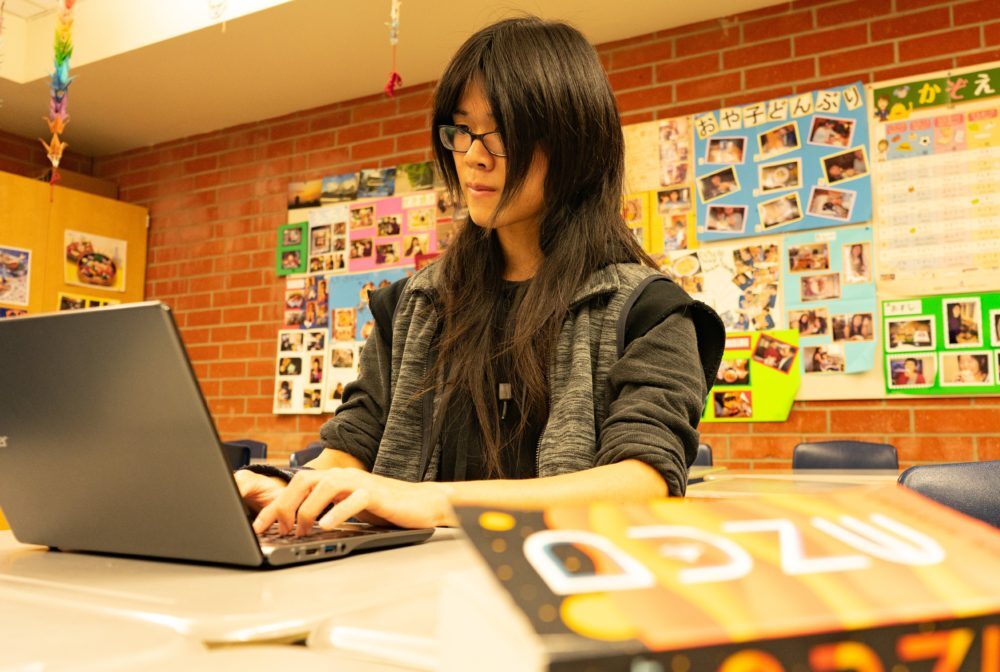
By Timothy Roe, Staff Writer
An encaptivating video found on Youtube gives you so much in so little time. A five minute guide on cooking lasagna or a life-changing inspirational speech all lurking under a single search bar is a lot of power for us as individuals. Movies and TV shows are readily available for us on programs such as Netflix and Hulu. Information and storytelling- wasn’t there something else we could do to get these things?
Reading. It’s a foreign concept to many people out there, but believe me, for most of human history, reading has been the best way to get a good story or learn something new. Things are different now though, right? The practicality and range of the internet far exceeds any library’s collection, and reading in general just seems tedious.
Why read at all?
First, let’s take a look at the facts: in 2013, Japan’s Tohoku University performed a study led by Hiraku Takeuchi that examined the effects of television on the brains of 276 children. Takeuchi found that the more television children watched per day, the thicker the parts of their brain associated with aggression and lower verbal ability became, regardless of the child’s background. In contrast, a different study done the same year at Emory University showed that after college students had read a novel, they had increased connectivity in parts of their brain related to language. Researchers at the University of Sussex also found reading to drastically reduce stress levels after only six minutes, beating other relaxing activities such as listening to music. The benefits don’t just end there. Studies have shown that the process of reading books also affect thinking skills, concentration, empathy, social perception, emotional intelligence, and even life expectancy. Those who read books for 30 minutes daily live an average of 23 months longer than those who don’t.
But why? What’s the difference anyhow? The differences in brain activity can be traced back to their medium. While watching videos and television is a passive activity that requires little concentration and imagination to perform, reading a book is active, involving greater cognitive effort to fully comprehend. In fact, the medium’s role in cognition may go beyond watching and reading; surveys indicate that the physical act of flipping through pages in a book makes it easier for our brains to form a mental map of our understanding on the book’s progress. When it comes to in-depth reading of a text, people prefer to read on paper rather than a screen, and even understand a topic more thoroughly when doing so. E-books are more convenient for travel and quick-reading, but paper books remain the top contender for getting absorbed in a text.
Perhaps you’re searching for specific information, though; in truth, watching a video guide on how to put together a table or make a fancy dish is actually more effective than reading a step-by-step procedure, for most people. The visual acuity of these guides makes it easier for us to understand, and is effective in teaching us specific skills. But these are quick, situational gains. They can teach you how to beat a certain video game boss, but you’ll have harder luck finding a video on how to survive the harsh conditions of society as an adult. The length of time it takes to thoroughly finish a book is unnerving, but it’s also the reason why it can leave such a deep impression on those who do. Personal growth, the practical skills that can be applied to everyday life, is hard to find in the speedy nature of videos. Sure, inspirational videos give you the motivation to take a different step in life; but they don’t teach you the minute steps in doing so.
The biggest setback for most people to start a new book is time. But if you find yourself in front of the TV for an hour a day, that means you do have time. You’re just using it on something that’s not really beneficial to you. Relaxation can come in moderate amounts; try 30 minutes of TV, 30 minutes of reading. For those who are actually stamped for time, with nine AP classes and whatnot, audiobooks are a good alternative. They’re especially useful for multitasking. Although comprehension of a material isn’t on par with reading it, the imagination still works its cogs, with an added bonus of hearing dialogue delivered in interesting and impressionable ways.
Making reading a habit is the same as implementing any other healthy activity into your schedule; getting started is the hardest part. Sitting down and staying focused on a task like reading seems tedious at first for all of us, but once it’s integrated into your lifestyle, you’ll be glad you took that first step.





